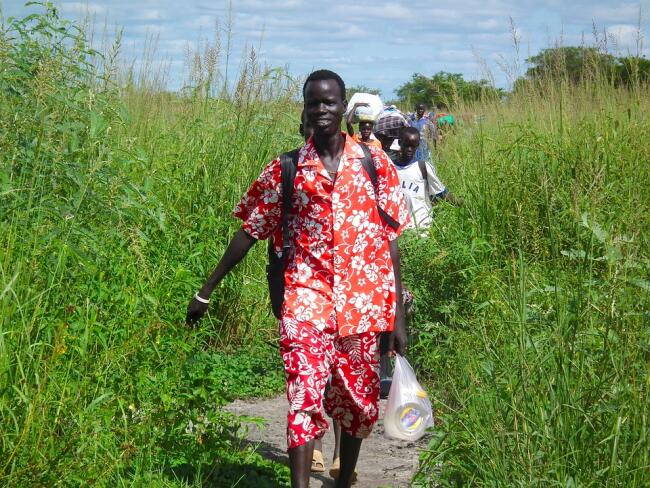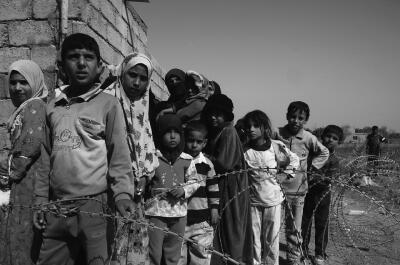Climate, Violence, and Hunger

The world produces enough food to feed everyone, yet, 11 percent of the global population (815 million people) is still affected by hunger.
In a recently released report by the United Nations, numbers show that after a decade of steady decline, global hunger is on the rise again. The report singles out conflict and climate change as the main drivers of this increase.
The Food and Agriculture Organization (FAO) of the United Nations established World Food Day (October 16) to bring awareness to the fight against global hunger and food security for all.

This year's World Food Day theme, "Change the future of migration. Invest in food security and rural development," focuses on the challenges of migration due to hunger, poverty, and extreme weather events linked to climate change.
A record 65.6 million people have been displaced from their homes due to factors such as conflict, persecution, and devastation caused by climate change. Many of these individuals and families seek shelter, safety, adequate living conditions, economic stability, and food security.
Climate and Violence
Ongoing conflicts around the world have pushed more than 56 million people into "crisis" or "emergency" levels of food security, according to the United Nations Security Council.

Places like Yemen and Syria are at the top of list in terms of the amount of people whose food security has been negatively affected by the ongoing conflicts in these areas. The prevalence of hunger in countries affected by conflict is 1.4 to 4.4 percentage points high than in countries with little or no ongoing conflict.
"Conflict is a leading cause of hunger—each famine in the modern era has been characterized by conflict," said FAO Director-General José Graziano da Silva and WFP Executive Director Ertharin Cousin in a joint news release last year.
Even in the world's peaceful regions, events related to climate change, such as droughts and flooding are destroying crops, livestock, and agricultural infrastructure; disrupting markets; damaging human capital; and contributing to the spread of disease, which leads to an uncertainty in food security and an increase in malnutrition.
The World Food Programme has estimated that if we fail to improve people's ability to prepare, respond, and recover from the effects of climate change, the risk of hunger and malnutrition could increase up by to 20 percent by 2050.
What We Can Do
 Investing in rural development helps to address factors that compel people to move. Development creates opportunities and jobs for young people that are not solely based on agriculture and farming. It can also lead to increased food security, improve access to social protection, reduce conflict over natural resources, and help mitigate the effects of climate change.
Investing in rural development helps to address factors that compel people to move. Development creates opportunities and jobs for young people that are not solely based on agriculture and farming. It can also lead to increased food security, improve access to social protection, reduce conflict over natural resources, and help mitigate the effects of climate change.
Planet Aid supports development around the world by strengthening and organizing vulnerable communities, supporting sustainable local food production, improving access to training and quality education, and much more. To learn more about our development projects, visit our program page.
Join in on the conversation about hunger or share your story by using #WFD2017 or #ZeroHunger on social media.
